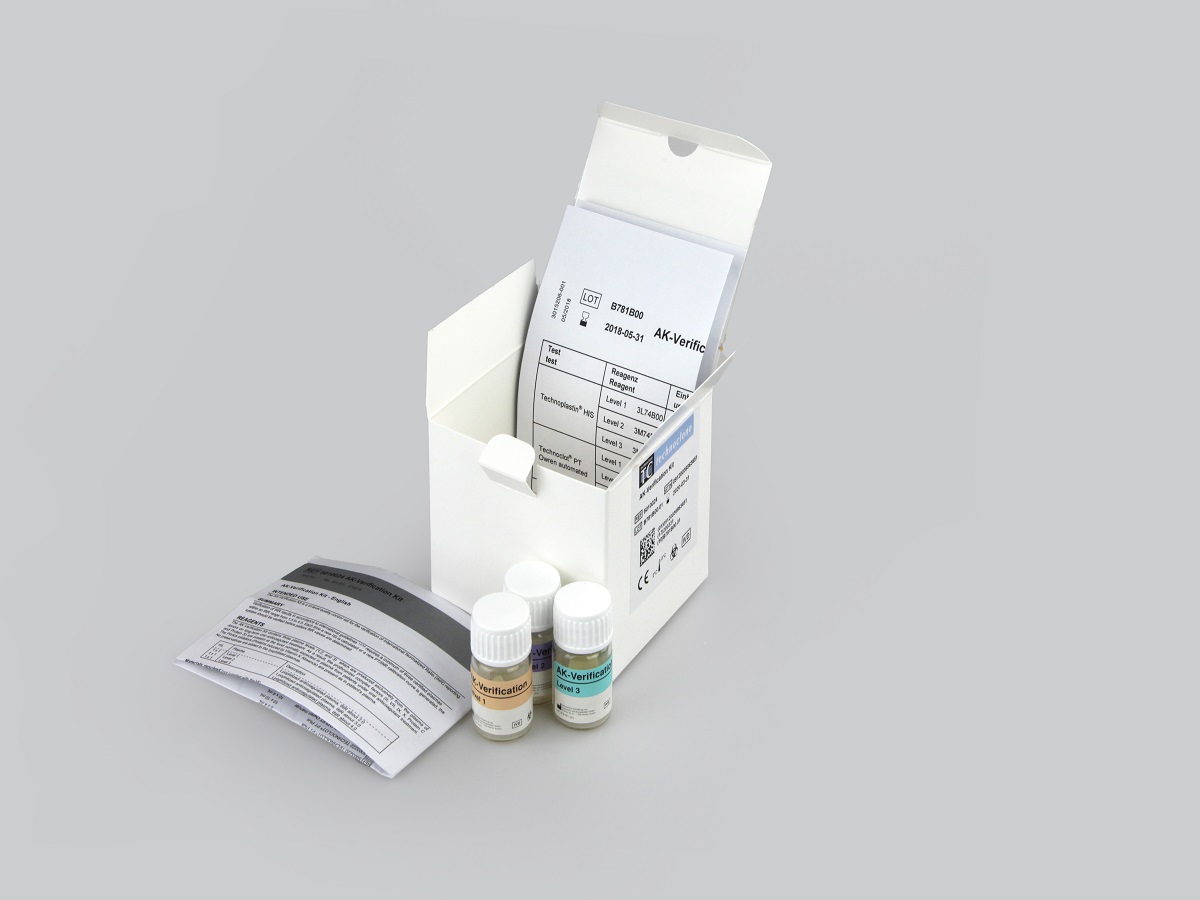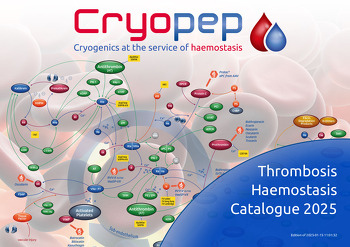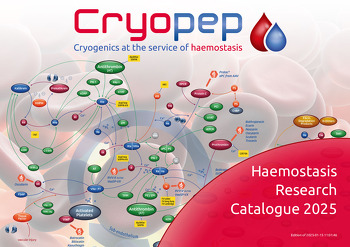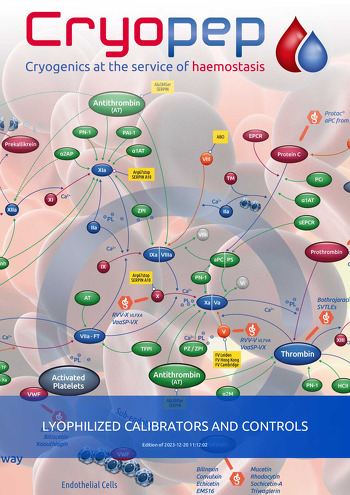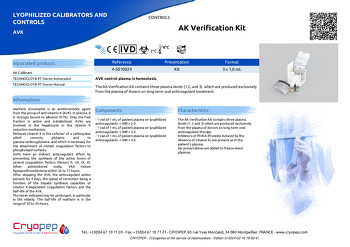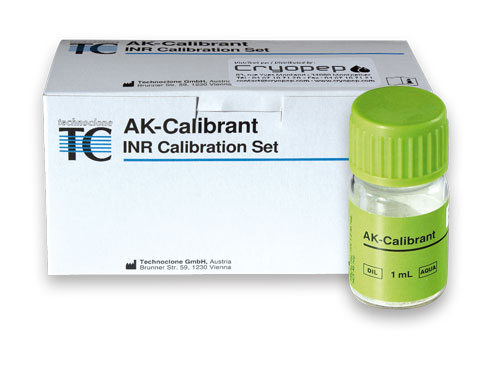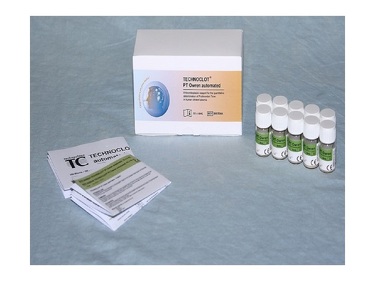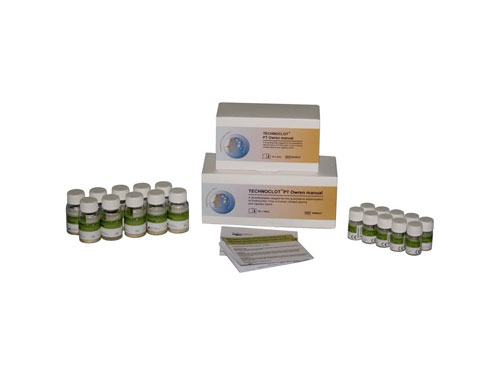HEMOSTASIS COAGULATION ROUTINE REAGENTS LYOPHILIZED CALIBRATORS AND CONTROLS AVK
AK Verification Kit
AVK control plasma in hemostasis.
The AK-Verification Kit contains three plasma levels (1,2, and 3) which are produced exclusively from the plasma of donors on long-term oral anticoagulant treatment.
Informations
Warfarin (Coumadin) is an antithrombotic agent from the group of anti-vitamin K (AVK). In plasma, it is strongly bound to albumin (97%). Only the free fraction is active and metabolized. AVKs are involved in the hepatocyte in the vitamin K reduction mechanism.
Reduced vitamin K is the cofactor of a carboxylase which converts glutamic acid to gamma-carboxyglutamic acid which is necessary for the attachment of certain coagulation factors to phospholipid surfaces.
AVKs have an indirect anticoagulant effect by preventing the synthesis of the active forms of several coagulation factors (factors II, VII, IX, X). When administered orally, VKA induce hypoprothrombinemia within 36 to 72 hours.
After stopping the AVK, the anticoagulant action persists for 4 days, the speed of correction being a function of the hepatic synthesis capacities of vitamin K-dependent coagulation factors and the half-life of the AVK.
The times indicated may be prolonged, in particular in the elderly. The half-life of warfarin is in the range of 35 to 45 hours.
Documentation
Download the product sheetPrice list, safety data sheets and notices are accessible to our registered customers.






References
| 4-5010024 | Kit | 3 x 1,0 mL |

